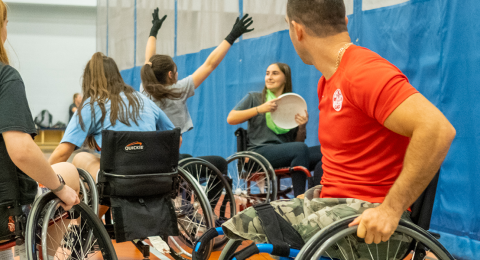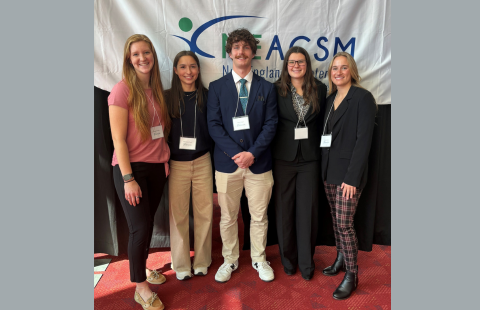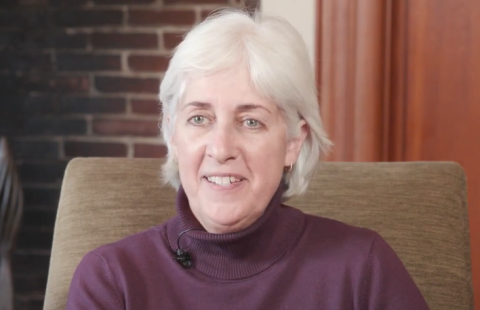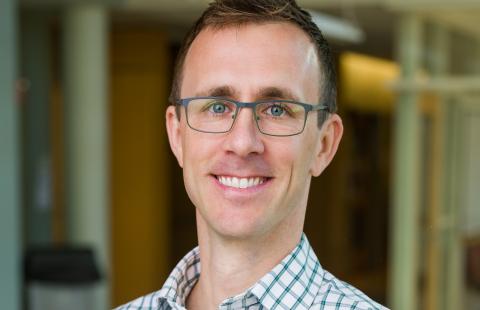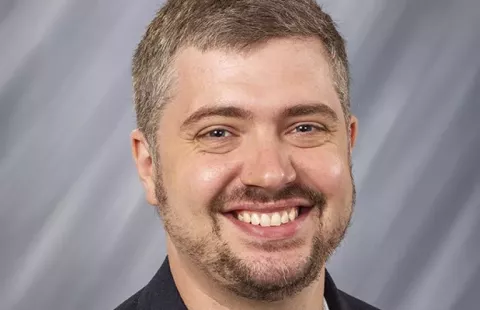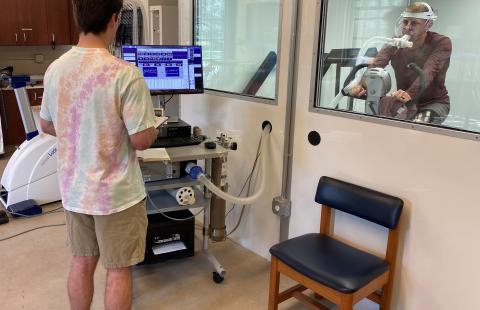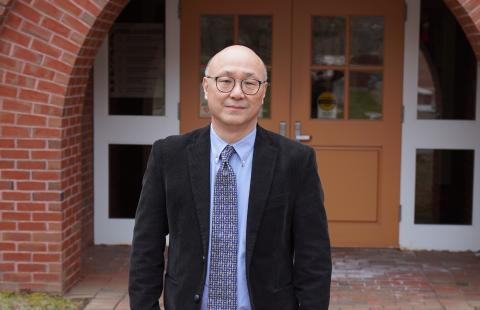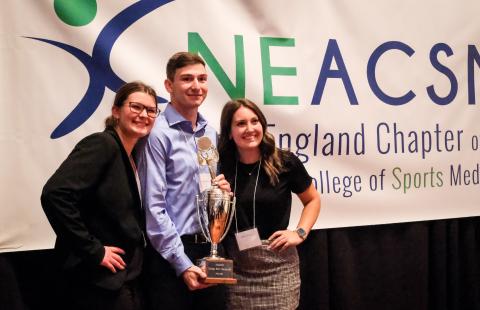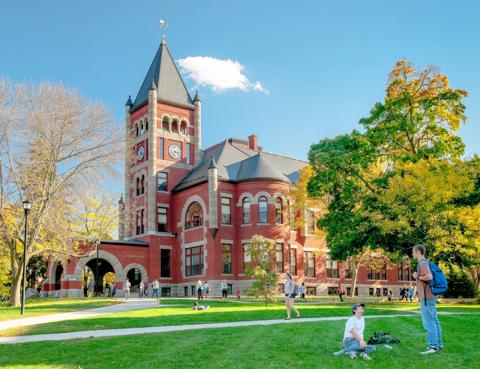When applying to our graduate program, your application will be automatically included in a pool for the grant that will comprehensively cover your tuition and more. To learn more about this grant opportunity and the program, please contact Dr. Scott McNamara at scott.mcnamara@unh.edu.
The Adapted Physical Education graduate program is an interdisciplinary program that aims to develop highly qualified adapted physical education teachers with a diverse skill set to allow graduates of this program to effectively instruct, assess, and develop meaningful relationships with students with disabilities to provide them a quality physical education experience.
What is Adapted Physical Education?
Adapted Physical Education refers to specialized direct services provided to students with disabilities who need adaptations or modifications to successfully access the physical education (PE) curriculum in K-12 schools. Furthermore, adapted PE is supported by the Individuals with Disabilities Education Act of 2004, which mandates that school districts make PE available to all children who receive special education services. Adapted PE has the same overarching goals and objectives as PE; however, the importance and precedence of these goals varies based on the unique needs of a child with a disability. Adapted PE services aim to allow students with disabilities to successfully attain their grade-level PE standards. Services provided by an adapted PE teacher may include: planning, assessment of students with disabilities, development of the individualized education plan (IEP), teaching, evaluation of services, coordination of services, consulting with families or general physical educators, and/or advocacy for students and PE.
Why study Adapted Physical Education at UNH?
Earning a Master’s degree in adapted PE offers numerous benefits, including promoting and empowering individuals with disabilities to participate in physical activities, and in turn improve their physical fitness and overall well-being. Evidence based practices rooted within research and directly related to outcomes that positively impact students with disabilities are integrated throughout the coursework and practicum experiences. Graduates of this program will be able to identify effective pedagogical strategies, distinguish valid and efficient inclusive teaching practices and strategies, use assessments and make informed decisions based on data, and determine the extent to which an activity promotes student learning and achievement. The content and experiences offered in this program are based within the APE national standards. Upon completion of the program, graduates will also be able to sit for the national APE exam.
Potential Careers
- Adapted physical educator
- General physical educator
- Educational consultant
- Adaptive sports coach
- Inclusive fitness trainer/coach
- Non-profit professional
Curriculum & Requirements
The Adapted Physical Education graduate program is an interdisciplinary program that aims to develop highly qualified adapted physical education teachers with a diverse skill set to allow graduates of this program to effectively instruct, assess, and develop meaningful relationships with students with disabilities to provide them a quality physical education experience. The coursework in this program promotes the practical applications of interdisciplinary collaboration between adapted physical educators, special educators, related service providers, and parents to improve service delivery and outcomes for students with disabilities. This program also includes numerous field work opportunities with individuals with disabilities to improve their health, psychomotor skills, and well-being. This program is a competency-based graduate program based within the Adapted Physical Education National Standards (APENS). The APENS outlines 15 standards to guide the professional preparation of APE teachers. Using these standards to guide the development of this graduate program option, students will be provided the information and experiences necessary for national certification.
The APE option comprises of a minimum of 32 credits of coursework and fieldwork, and a capstone experience in the form of a research thesis or an applied research project
| Code | Title | Credits |
|---|---|---|
| Required Courses | ||
| RMP 992 | Research Methods in Recreation Management and Policy | 3 |
| or RMP 824 | Research, Evaluation, and Data-Driven Decisions | |
| or KIN 870 | Research Methods in Kinesiology | |
| KIN 895 | Advanced Studies (Adapted Physical Education) | 2 |
| EDUC 881 | Introduction to Statistics: Inquiry, Analysis, and Decision Making | 4 |
| KIN 881 | Introduction to Adapted Physical Education | 4 |
| KIN 842 | Advanced Assessment in Adapted Physical Activity | 4 |
| RMP 820 | Adaptive Sport Facilitation for Recreation Therapy and Related Professions | 3 |
| or EDUC 850 | Introduction to Disability in Inclusive Schools and Communities | |
| RMP 840 | Therapeutic Recreation Service Delivery in Community Settings | 3 |
| Capstone | ||
| Select one of the following: | ||
| KIN 899 | Master's Thesis (Thesis Students) | 6 |
| KIN 895 | Advanced Studies (Non-Thesis Students) | 4 |
| Electives | ||
| Select one to two courses from the following: | ||
| EDUC 856 | Advocating for Diverse and Inclusive Family-School-Community Partnerships | 4 |
| EDUC 839 | Assessment and Individualized Educational Planning in Special and Inclusive Education | 4 |
| EDUC 956 | Developing Positive Behavior Supports to Ensure Success for All Learners | 4 |
| EDUC 818 | Critical Social Justice in and Beyond Education | 4 |
| KIN 841 | Social Issues in Contemporary Sports | 4 |
| KIN 865 | Advanced Topics in Coaching | 4 |
| OT 832 | Introduction to AT Design and Fabrication | 2 |
Program Learning Outcomes
- Graduates will be able to use current APE literature and evidence-based practices to deliver high quality APE services.
- Graduates will be involved in a 100+ hours of practicum experiences during their program where they work with individuals with disabilities.
- Graduates will develop positive attitudes and dispositions towards individuals with disabilities.
- Graduate will be able to effectively collaborative with a multi-disciplinary team.
- Graduates will have the knowledge and skills to effectively implement the following: (a) Universal Design for Learning principles, (b) IEP development and process, (c) assistive technology, (d) behavior management, (e) formative and summative assessments, and (f) transition planning.
- Graduates will be able to read, synthesize, and apply APE research to their APE service delivery to students with disabilities.
- Graduates will be able to understand how special education legislation mandates impacts APE service delivery.
- Graduates will be able to understand the unique physical and learning attributes associated with specific disabilities and develop a physical education program tailored to the specific needs of that disability.
Deadlines
Applications must be completed by the following deadlines in order to be reviewed for admission:
- Fall: April 1 (recommended US; final international); July 1 (final)
- Spring: Dec. 1
- Summer: N/A
- Special: N/A
Application fee: $65
Campus: Durham
New England Regional: Case-by-Case
Accelerated Masters Eligible: No
New Hampshire Residents
Students claiming in-state residency must also submit a Proof of Residence Form. This form is not required to complete your application, but you will need to submit it after you are offered admission, or you will not be able to register for classes.
Transcripts
If you attended UNH or Granite State College (GSC) after September 1, 1991, and have indicated so on your online application, we will retrieve your transcript internally; this includes UNH-Durham, UNH-Manchester, UNH Non-Degree work and GSC.
If you did not attend UNH, or attended prior to September 1, 1991, then you must upload a copy (PDF) of your transcript in the application form. International transcripts must be translated into English.
If admitted, you must then request an official transcript be sent directly to our office from the Registrar's Office of each college/university attended. We accept transcripts both electronically and in hard copy:
- Electronic Transcripts: Please have your institution send the transcript directly to grad.school@unh.edu. Please note that we can only accept copies sent directly from the institution.
- Paper Transcripts: Please send hard copies of transcripts to: UNH Graduate School, Thompson Hall- 105 Main Street, Durham, NH 03824. You may request transcripts be sent to us directly from the institution or you may send them yourself as long as they remain sealed in the original university envelope.
Transcripts from all previous post-secondary institutions must be submitted and applicants must disclose any previous academic or disciplinary sanctions that resulted in their temporary or permanent separation from a previous post-secondary institution. If it is found that previous academic or disciplinary separations were not disclosed, applicants may face denial and admitted students may face dismissal from their academic program.
Letters of recommendation: 3 required
Recommendation letters submitted by relatives or friends, as well as letters older than one year, will not be accepted.
Personal Statement/Essay Questions
Prepare a brief but careful statement regarding:
- Reasons you wish to do graduate work in this field, including your immediate and long-range objectives.
- Your specific research or professional interest and experiences in this field.
Resume
Resume is optional but recommended.
Important Notes
All applicants are encouraged to contact programs directly to discuss program-specific application questions.
International Applicants
Prospective international students are required to submit TOEFL, IELTS, or equivalent examination scores. English Language Exams may be waived if English is your first language. If you wish to request a waiver, then please visit our Test Scores webpage for more information.
